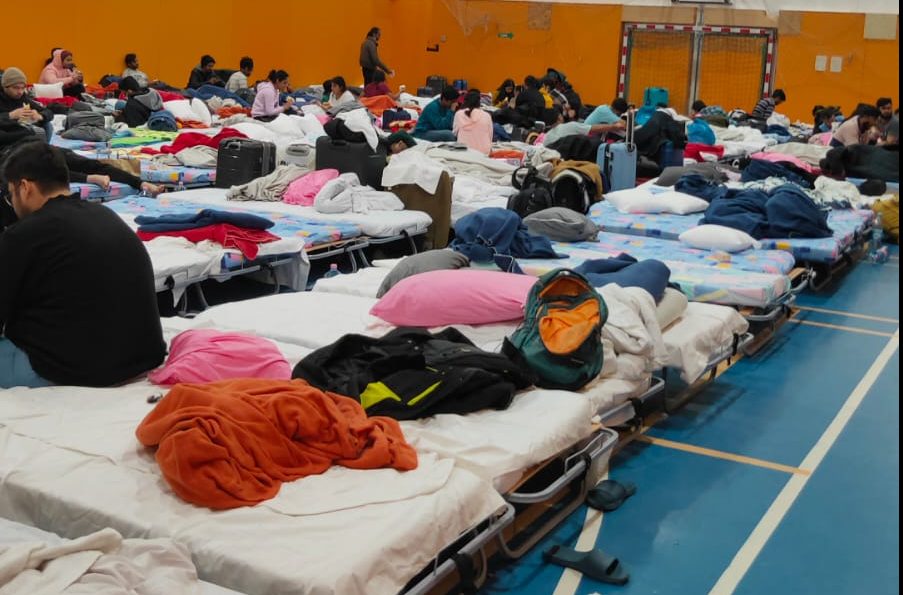Indian Embassy in Kyiv is “helpless” &”powerless”: Ukraine-returned medical student
-Shreyosi Chakraborty
As surprising as it may seem, at a time when a Pakistani student, Asma Shafique is all praises for the Indian government for evacuating her from war-torn Ukraine, Indian students grumble over the absenteeism of any Indian Embassy representative at ground zero in Kyiv.
A medico who returned to India recently called the Indian Embassy in Kyiv as “helpless” and “powerless” at a time when Shafique’s statements have hit the headlines. Koustav Halder, shared his journey of traversing through the war-ravaged state amidst missile attacks and gunshots after managing to return to his motherland in West Bengal. Halder is a third-year student of Vinnytsia National Pirogov Medical University, Vinnytsia, where the airport was completely destroyed by eight Russian missiles on March 6.
Sirens were heard from Vinnytsia University’s Hostel at 7.30 a.m. and bomb blasts were heard around 8.15 a.m. in Vinnytsia outskirts on February 25.
“There was communication from Indian Embassy that the situation at the borders was worrisome. The Embassy had asked us to vacate our hostels and leave Ukraine on our own. On the contrary, the university authorities wanted to commence offline classes from this March and were very particular about that,” recalls Koustav.
The young medico further says that many students vacated the college campus on February 24, soon after the war broke out. “My friends somehow managed to leave for Kyiv which is around 250 kms from our college to catch the first flight from there. But they had to wait there for hours even after checking in on the flights without food and water,” he recollects.
“All the other students from our college came out on February 26. A bus was arranged for us by our agency. We carried chocolates and dry food items to sustain through a journey which was ridden with uncertainties. We arrived at Chernivtsi , located in southwest Ukraine, around 40 km from the Romanian border. We spent the night inside a bunker and in the morning we walked around 12 kms amidst snowfall and freezing temperatures to reach the Romanian border,” he adds.
There was a pandemonium-like situation at the border. “Guards were firing blank shots in the air to control the huge crowd that had gathered. People from Ukraine got first preference. Nigerians were allowed to cross the border before us. We were the last people to be paid heed to. No Indian Embassy officials were at sight nor did they assist us till this point,” Halder complains.
Scenes at the Ukraine-Romania border area
However, he remembers the hospitality of the people of Romania and the Romanian government who were helpful as they provided students with cooked food, water, juice and also handed out sim cards to students who wanted to contact their families.
“We stayed in a Romanian shelter for four days after which we were evacuated to Bucharest. At Bucharest, we had to wait for another day before we could finally board our flights to India where we were accompanied by Indian Embassy officials,” he says.

Inside a Romanian shelter
“We are back inside our safe zones but I am really worried about my friends who are Ukrainian residents. My teachers are still there inside the university’s basement bunkers hoping for the war to end. Some teachers are out on the battlefield fighting for their country. No one knows when things will fall into place and if I will ever see all my teachers and friends once again in person or catch up for a medical discussion or dissection class again,” rues the young student.
Also Read:Making metro station her home: Ukraine returnee medico recollects
















Add comment